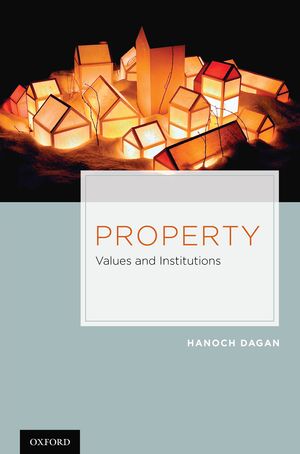
Property: Values and Institutions, by Hanoch Dagan, offers an original understanding of property, different from the dominant voices in the field, yet loyal to the practice of property. It rejects the misleading dominant binarism in which property is either one monistic form, structured around Blackstone's (in)famous formula of sole and despotic dominion, or a formless bundle of rights. Instead, it conceptualizes property as an umbrella for a set of institutions bearing a mutual family resemblance. It resists the prevailing tendency to discuss property through the prism of only one particular value, notably efficiency. Dagan argues that property can, and should, serve a pluralistic set of liberal values. These property values include not only autonomy and utility, which are emphasized by many contemporary scholars, but also labor, personhood, community, and distributive justice.
Dagan claims that property law, at least at its best, tailors different configurations of entitlements to different property institutions, with each such institution designed to match the specific balance between property values best suited to its characteristic social setting. Dagan develops this theoretical account and applies it to key doctrinal contexts. In particular, he analyzes the normative underpinnings of the doctrines regulating the interactions between landowners and governments (both eminent domain and regulatory takings doctrines) and those regulating the governance of property owned by multiple owners (such as co-ownership, marital property, and the law of common interest communities).